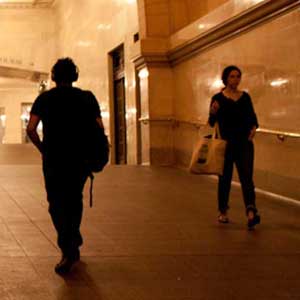How do you police the internet? It’s a question that most governments are confronting in one way or another, from America’s mass surveillance programme, to Britain’s sentences for Twitter trolls, to social media black-outs in the Middle East.
The question is particularly confounding Turkey’s prime minister, Recep Tayyip Erdogan. In a bid to silence allegations of corruption against him and his government in the run-up to local elections on 30 March, he removed around 7,000 policemen from their posts and boosted government controls over judges and prosecutors. But the internet has been more difficult to crack. While the formal corruption investigation has stalled, Twitter and YouTube have been used to circulate incriminating voice recordings of Erdogan and his associates. The prime minister has said that some of these are false, but others are acknowledged to be authentic.
On Thursday 20 March, Turkey’s telecommunications department announced that a “protection measure” had been taken out for Twitter: in other words, a ban. Yet this did not have the desired effect. According to the analytics company Brandwatch, the number of tweets sent after the ban came in at midnight that night was about 140 per cent of normal levels. Twitter sent out mobile numbers that allowed Turkish consumers to continue using the service. Turkish downloads of Hotspot Shield, a virtual private network service, increased to 270,000 last Friday, from a previous daily average of 7000.
Those flouting the ban included the Turkish President, Abdullah Gul, who tweeted: "The shutdown of an entire social platform is unacceptable. Besides, as I have said many times before, it is technically impossible to close down communication technologies like Twitter entirely. I hope this measure will not last long." EU commissioner Neelie Kroes said Erdogan’s move was “groundless, pointless, cowardly”.
This week, undeterred by widespread international and domestic criticism, Erdogan has stepped up the ban, getting internet service providers in the country to block the addresses used by the site.
The prime minister has had control over Turkey’s mainstream media for years. In one particularly striking example earlier this month, 10 newspapers published exactly the same pro-government front-page headline: "Millet bu oyunu sandıkta bozacak" or, "The people will destroy this game [corruption allegations] at the polling stations". Given this background of stringent censorship, why has Turkey’s ban on Twitter caused such outrage and been top of the international news agenda?
The answer might partially lie in the sheer newness of introducing internet bans. There is also the fact that censoring social media goes against the whole idea of the democratisation of information that the technology offers. The free press has long been considered a vital part of a functioning democracy – but it still involves the elevation of some voices above others. Social media, which gives everyone an outlet, is increasingly seen as an important right. In countries, like Turkey, where the mainstream media is cowed, these forms of communication – Twitter, YouTube – become even more important as a means to spread information. And people simply feel the effects of this censorship more personally as it prohibits each of their voices. The ban on YouTube in Pakistan (introduced after riots over the “Innocence of Muslims” clip in 2012) has caused more popular outrage than the censorship of articles that criticize the judiciary or the military, for example.
As Erdogan steps up his attempt to “root out” the social networking site, attempts to circumvent the ban are continuing. On the basis of current evidence at least, the ban seems to be something of an own goal.

